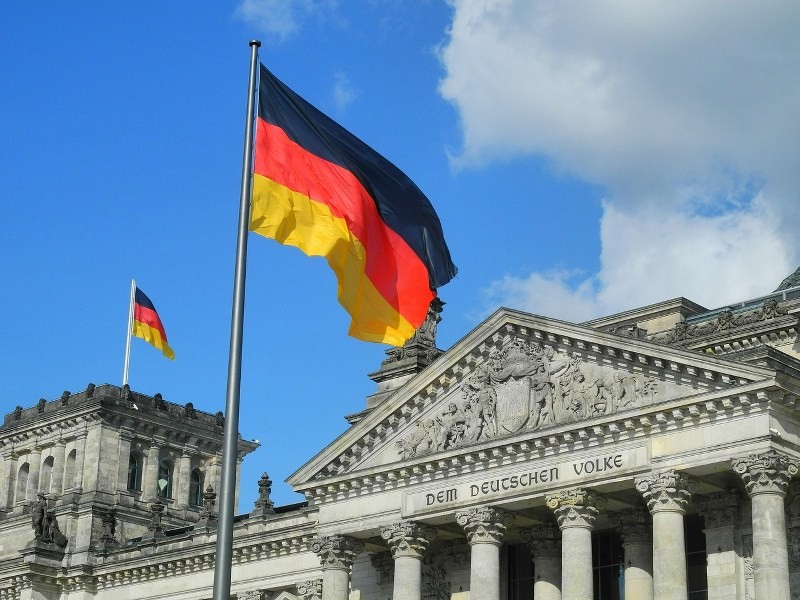
Germany votes in high-stakes election as economic woes and migration debates dominate
Berlin: Germans are casting their votes in a pivotal election shaped by economic difficulties and security concerns, with migration emerging as a key issue following a series of deadly attacks.
Around 59.2 million people are eligible to vote, though millions have already cast their ballots by post, according to a BBC report.
This snap election follows the collapse of Chancellor Olaf Scholz's three-party coalition, making him the shortest-serving government leader in 50 years and the only SPD chancellor to have never been re-elected.
Polling stations close at 18:00 (17:00 GMT), and initial results are expected in the evening, with a clearer picture emerging early Monday.
Candidates in the fray
Four main candidates are vying to lead the government: Chancellor Olaf Scholz from the centre-left Social Democrats (SPD), Friedrich Merz of the conservative Christian Democratic Union (CDU), Vice Chancellor Robert Habeck of the Greens, and Alice Weidel of the far-right Alternative for Germany (AfD).
What pre-poll surveys say?
According to a DW report, pre-election surveys indicate the CDU and its Bavarian ally, the Christian Social Union (CSU), lead with around 30% support, positioning Merz as the likely next chancellor.
The AfD, polling at about 20%, is the second most popular party but remains politically isolated as other parties refuse to collaborate with them.
If elected, Merz will likely need a coalition partner, most likely with the SPD or the Greens.
The SPD faces a historic defeat, polling well below 20%, which would mark its worst performance in post-war Germany.
The business-focused Free Democrats (FDP) risk missing the 5% threshold required for Bundestag representation, further complicating coalition-building efforts.
A watershed moment for Germany
This election is being closely monitored across Europe and the US, as Germany faces key decisions both domestically and on the global stage.
Merz, the 69-year-old CDU leader, has vowed to resolve major issues within four years—an ambitious promise for Europe’s largest economy, which is grappling with a faltering infrastructure.
Germany's electoral system favours coalition governments, meaning the CDU/CSU will need at least one partner to secure a majority.
If smaller parties like the socialist Left Party, the populist Sahra Wagenknecht Alliance (BSW), or the FDP enter parliament, a three-party coalition may become necessary, the DW report said.
The AfD remains isolated, with all other parties refusing to collaborate.
However, AfD candidate Alice Weidel insists their political influence is growing. "The turnaround is coming and is only being unnecessarily delayed," she said, according to the DW report.
Key issues: Economy, war, and migration
Throughout the campaign, Merz intensified his criticism of Scholz, who struggled to defend his government’s performance.
Germany's economy has been shrinking for three consecutive years, and Merz blames left-wing policies for the crisis.
"We are in a recession for the third year in a row. That has never happened before in Germany's post-war history," he said, according to the DW report.
The economic downturn was exacerbated by Russia’s 2022 invasion of Ukraine, which triggered an energy crisis and inflation.
Migration also became a central issue following a fatal knife attack by a rejected Afghan asylum seeker in Bavaria.
Merz sought to tighten asylum policies even before the election, a move welcomed by AfD lawmakers, who supported a non-binding motion he introduced in parliament, the report said.
This sparked mass protests against a rightward shift in German politics, with Scholz accusing Merz of aligning with the AfD.
No alliance with the far-right
Amid growing tensions, Merz repeatedly ruled out any cooperation with the AfD, stating that the right-wing party aims to "destroy" the CDU and CSU.
"Under no circumstances will we form a coalition with the AfD," he vowed, DW reported.
With Germany at a crossroads, the outcome of this election will shape the country’s political and economic landscape for years to come.
Support Our Journalism
We cannot do without you.. your contribution supports unbiased journalism
IBNS is not driven by any ism- not wokeism, not racism, not skewed secularism, not hyper right-wing or left liberal ideals, nor by any hardline religious beliefs or hyper nationalism. We want to serve you good old objective news, as they are. We do not judge or preach. We let people decide for themselves. We only try to present factual and well-sourced news.







